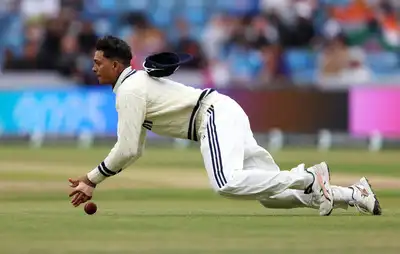India is known for being home to some of the most venomous snakes slithering on Earth. From King Cobra and Russell’s Viper, the diverse landscapes of the country hide some of the deadliest snakes which can be spotted in the Western Ghats, Sundarbans, Rajasthan’s Desert Region and Deccan Plateau, among others. There are myriad places in India where one can spot highly dangerous snakes.
Have a look:

Also known as the ‘King Cobra capital of India’, the Agumbe region in Karnataka shares the biodiversity of the Ghats, where cobras are famously abundant. The forests, heavy rainfall, and rich prey base make it a prime habitat for snakes.

The Deccan Plateau in Maharashtra is renowned for frequent snake encounters. Villagers often complain of snakes hiding in their houses and toilets, especially during the monsoons. The sightings of Cobra, Russell’s Viper, and Saw-Scaled Viper are quite common in this region. Agricultural fields and sugarcane farms bring snakes so rescue groups are very active in the whole area.

Next on the list is Sundarbans. The mangrove forests here hide some of the deadliest snakes known to humans. The dangerous snake population here includes that of the King Cobra and Banded Krait, among others. This swampy region offers both prey and cover, making it perfect for snakes to thrive.

Did you know that Rajasthan’s Desert Region is famous for being home to India’s one of the “Big Four”, the deadly saw-scaled viper? Yes, these snakes are deadly, dangerous and hide in the sandy regions of Rajasthan. They camouflage themselves which makes it hard to spot and extremely dangerous to locals.

Assam and most of the Northeast Indian region has humid jungles which are a perfect hide of King Cobras, Kraits, and pit vipers, among others. These are deadly to the next level. Rich biodiversity and dense forests provide perfect shelter for these snakes to live and thrive. People report snake bite incidents from tea gardens and rural regions.

Paddy fields in Tamil Nadu are another prominent hotspots for deadly snakes such as cobras and kraits. The harvest season is especially dangerous for farmers working barefoot. They are at particular risk of snakebites. The South India state also has a strong network of snake rescuers. The awareness programs work on high.

If you thought Western Ghats are only about lush hill stations and green forests, you’ll be shocked to know that Kerala’s Western Ghats are home to some of the deadliest snakes that live on Earth. King Cobra and Russell’s Viper can easily be sighted in the lush beauty of the ghats. Locals often encounter snakes in plantations and their houses during the monsoon.

Odisha’s forests and coastal regions host many venomous snakes. Kraits and Russell’s Vipers are a common sight here. Rural regions witness frequent incidents, particularly in monsoons when snakes enter homes.
Newer articles
Older articles
 Gavaskar Calls for Kuldeep Yadav's Inclusion in Second Test Amid Bumrah Fitness Concerns
Gavaskar Calls for Kuldeep Yadav's Inclusion in Second Test Amid Bumrah Fitness Concerns
 Early Warning Signs: 5 Heart Attack Symptoms to Watch Out For a Month in Advance
Early Warning Signs: 5 Heart Attack Symptoms to Watch Out For a Month in Advance
 Oral Cancer: Spot the Signs, Understand the Risks, and Why Early Detection is Key
Oral Cancer: Spot the Signs, Understand the Risks, and Why Early Detection is Key
 Rishabh Pant's Composed Reply Deflates Harry Brook's Sledge in Edgbaston Test: Watch Key Moments
Rishabh Pant's Composed Reply Deflates Harry Brook's Sledge in Edgbaston Test: Watch Key Moments
 Rohit Sharma Credits Barbados as India's Lucky Ground After T20 World Cup Triumph
Rohit Sharma Credits Barbados as India's Lucky Ground After T20 World Cup Triumph
 Jaiswal Aims to Eclipse Gavaskar's 49-Year-Old Record in Edgbaston Test Showdown
Jaiswal Aims to Eclipse Gavaskar's 49-Year-Old Record in Edgbaston Test Showdown
 FIFA Club World Cup 2025: Upsets, Messi Magic, and 2026 World Cup Concerns Emerge From Group Stage
FIFA Club World Cup 2025: Upsets, Messi Magic, and 2026 World Cup Concerns Emerge From Group Stage
 Science-Backed: Simple Habits for a Stronger Heart, According to Experts
Science-Backed: Simple Habits for a Stronger Heart, According to Experts
 Prithvi Shaw Admits to Missteps, Lost Focus Amid Career Setbacks
Prithvi Shaw Admits to Missteps, Lost Focus Amid Career Setbacks
 India's Fielding Failures Under Scrutiny After First Test Defeat to England: Former Selector критикует Dropped Catches
India's Fielding Failures Under Scrutiny After First Test Defeat to England: Former Selector критикует Dropped Catches